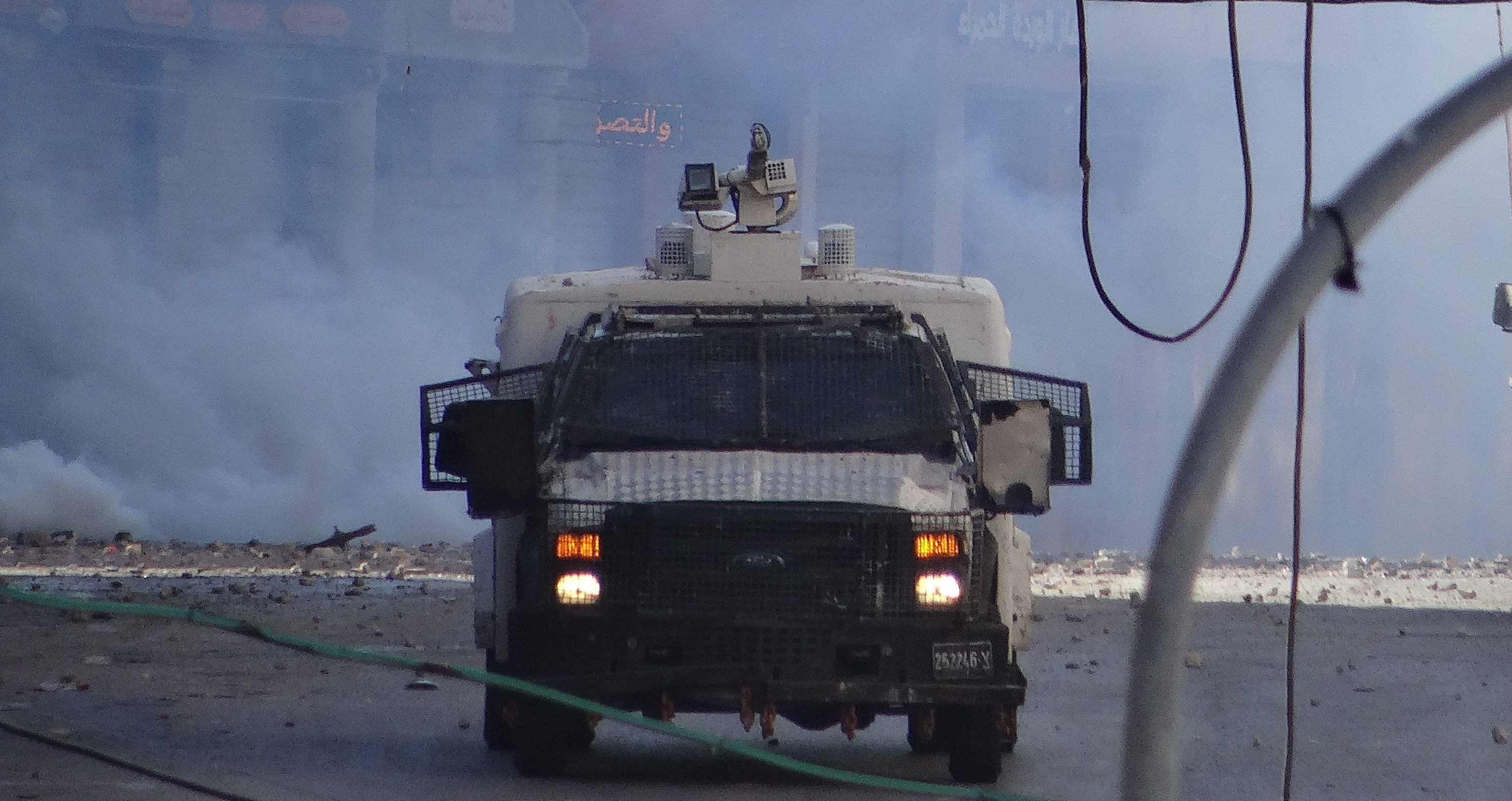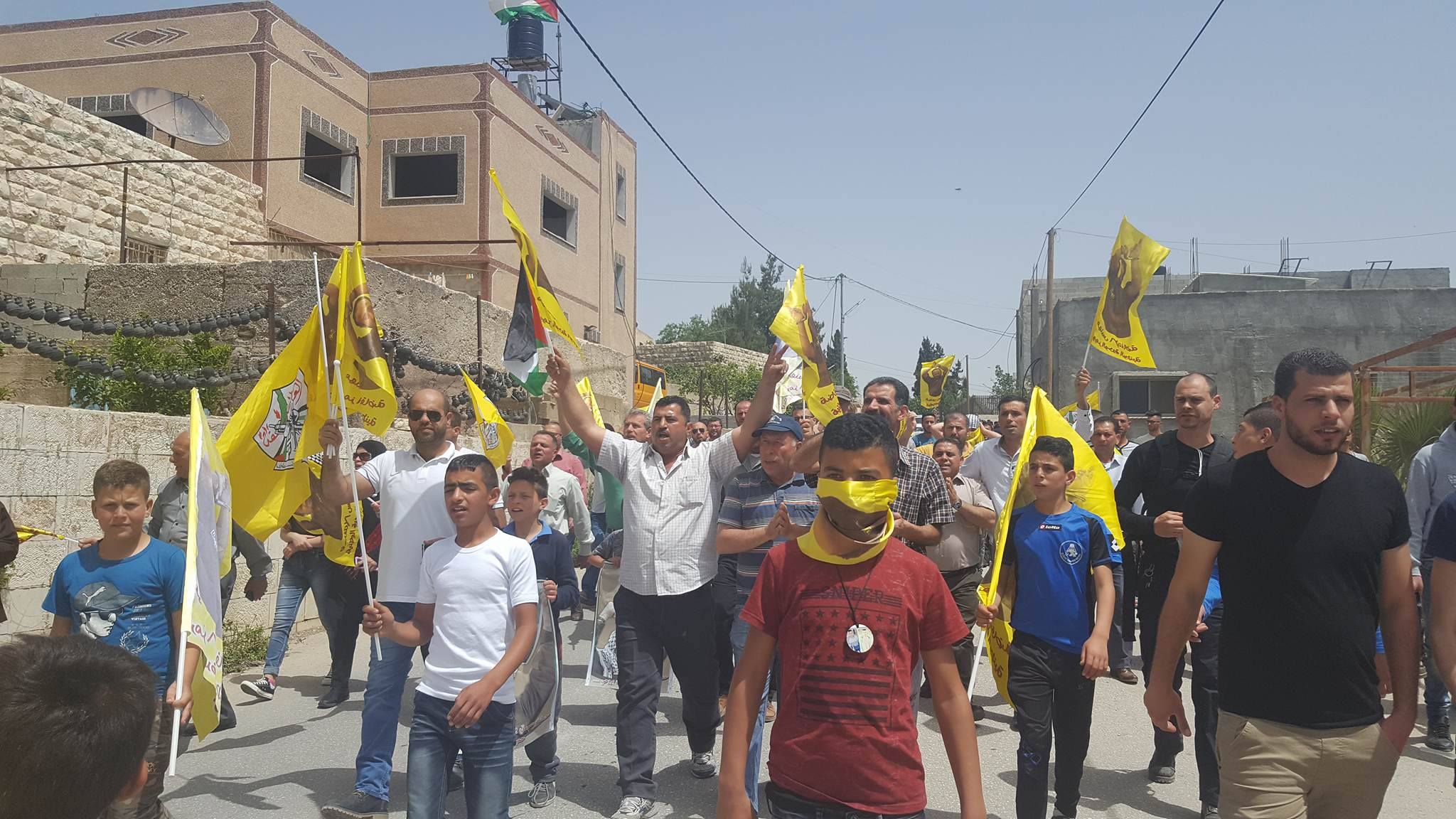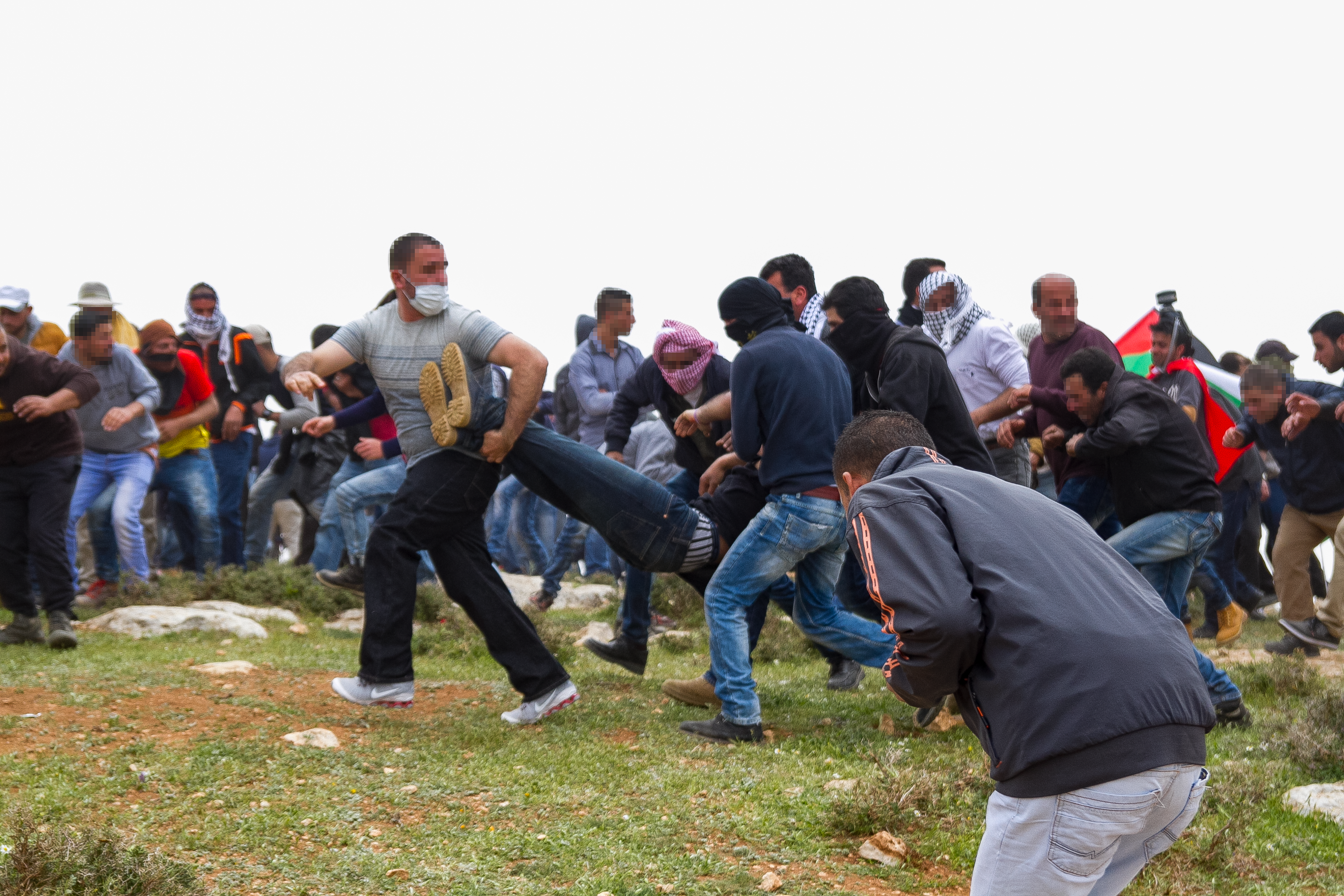Tag: Live Ammunition
-
Two days of clashes in al-Khalil in connection with prisoners’ hunger strike
30th April 2017 | International Solidarity Movement, Khalil Team | al-Khalil (Hebron), occupied Palestine Heavy clashes broke out during two consecutive days as Israeli forces stormed the Bab Al-Zawiah neighborhood in al-Khalil, attacking young Palestinians protesting in solidarity with the ongoing prisoners’ hunger strike. It resulted in multiple persons being injured, caused by live ammunition…
-
Nabi Salih marches in solidarity with Palestinian prisoners on hunger strike
22nd April 2017 | International Solidarity Movement, Ramallah Team | Nabi Salih, occupied Palestine On Friday 21st April, a demonstration held in solidarity with Palestinian prisoners on hunger strike was violently supressed by Israeli forces at Nabi Salih, occupied West Bank. Teargas, rubber-coated steel bullets, and live rounds were fired at demonstrators by Israeli forces…
-
Palestinians shot with live ammunition during demonstration near Al-Mughayyir
24th March 2017 | International Solidarity Movement, Ramallah team | Al-Mughayyir, occupied Palestine On 24th March 2017 the popular resistance in Al-Mughayyir, north-east of Ramallah, held a demonstration against a new illegal outpost which was established approximately 10 days ago by Israeli settlers who set up caravans on Palestinian land. Basic buildings and infrastructure have…



